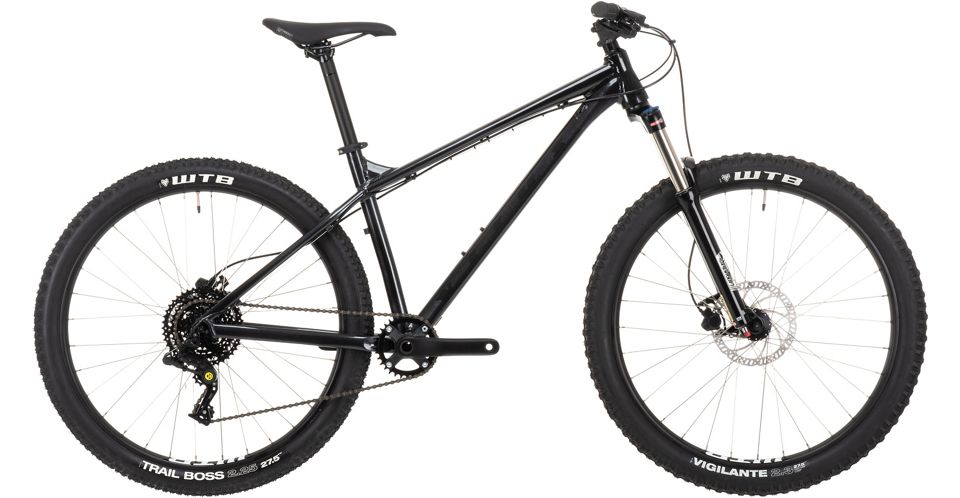Ribble CGR Ti Sport | Titanium Cross Gravel Road Bikes | Ribble Cycles
Bikes Gravel Bikes CGR Range CGR Ti. Ribble CGR Ti – Sport. Shimano 105. BBCGTIV3001.
Road, gravel, or trail the CGR Ti certainly ticks all the boxes. This highly versatile machine is designed to do it all. The sport edition is equipped with the exceptionally smooth, precision shifting performance of Shimano’s 105 11-speed complete and powerful 105 hydraulic disc brakes. Mavic’s ever reliable Aksium wheelset with the all-terrain versatility of Schwalbe G-One Allround tyres are a highly capable wheelset for year-round riding.
Additional versatility is provided by the inclusion of a set of fitted Ribble 46mm reinforced plastic mudguards for improved all-season wet weather protection and mounting points for a rear pannier rack, to take care of any luggage carrying needs.
Shimano 105 benefits from technology and features trickled down from its premium tier siblings and makes this ‘pro level’ shifting performance more accessible. Shimano’s own 105 hydraulic disc brakes are supremely powerful with superior modulation for complete braking confidence.
Mavic Aksium wheels offer the incredible performance and durability you would expect to find on premium race wheels and are ideal for everyday riding. Schwalbe G-One tyres are a tubeless-ready, multi-purpose tyre with impressive grip and fast-rolling ride characteristics whether on paved surfaces, gravel or out on the trails.
The complete Level cockpit consists of matching Level 1 6061 alloy handlebars wrapped in a comfortable Level cork tape matched with a LEVEL 1 6061 alloy handlebar stem. Completing the finishing kit is a LEVEL 2 carbon seatpost fitted with a Prologo Kappa RS saddle and a set of Ribble 46mm mudguards.
Additional information
| Groupset | Shimano 105 R7020 2×11-Speed Hydraulic Disc. |
|---|---|
| Wheelset | Wheels – Mavic Aksium Disc,12mm Thru-Axle. |
| Frameset | Frame – 3AL/2.5V Titanium, Double-Butted, Seamless Weld. |
| Finishing Kit | Bars – LEVEL 1 6061 Alloy, Black. |
| Extras | Mudguards – Ribble 46mm, Black. |
| Weight | Approximate Weight – 10.65kg/23.4lbs (medium) |






by Jack
After previously riding a bulky tank of a tourer, hopping on this and heading down to my closest trail for a trial run was a real treat!
It handles like an absolute dream and feels effortless riding on various terrains and just makes you want to keep on riding despite being soaked through and exhausted.
Would not hesitate to buy from Ribble again!
by Malc
Absolute star!
Super comfy ride but on these wide tyres it should be. Maybe should have looked for something a little narrower as I will be on road mostly.
Now for the down side!
Ordered the 105 sport ti as it came with mudguards, well it should have done! Give Ribble their due they put their hand up and I soon had the missing mudguards!!
Oh dear! As I tried to fit said mudguards it was obvious they should both be the same width but weren’t! Still waiting for correct front